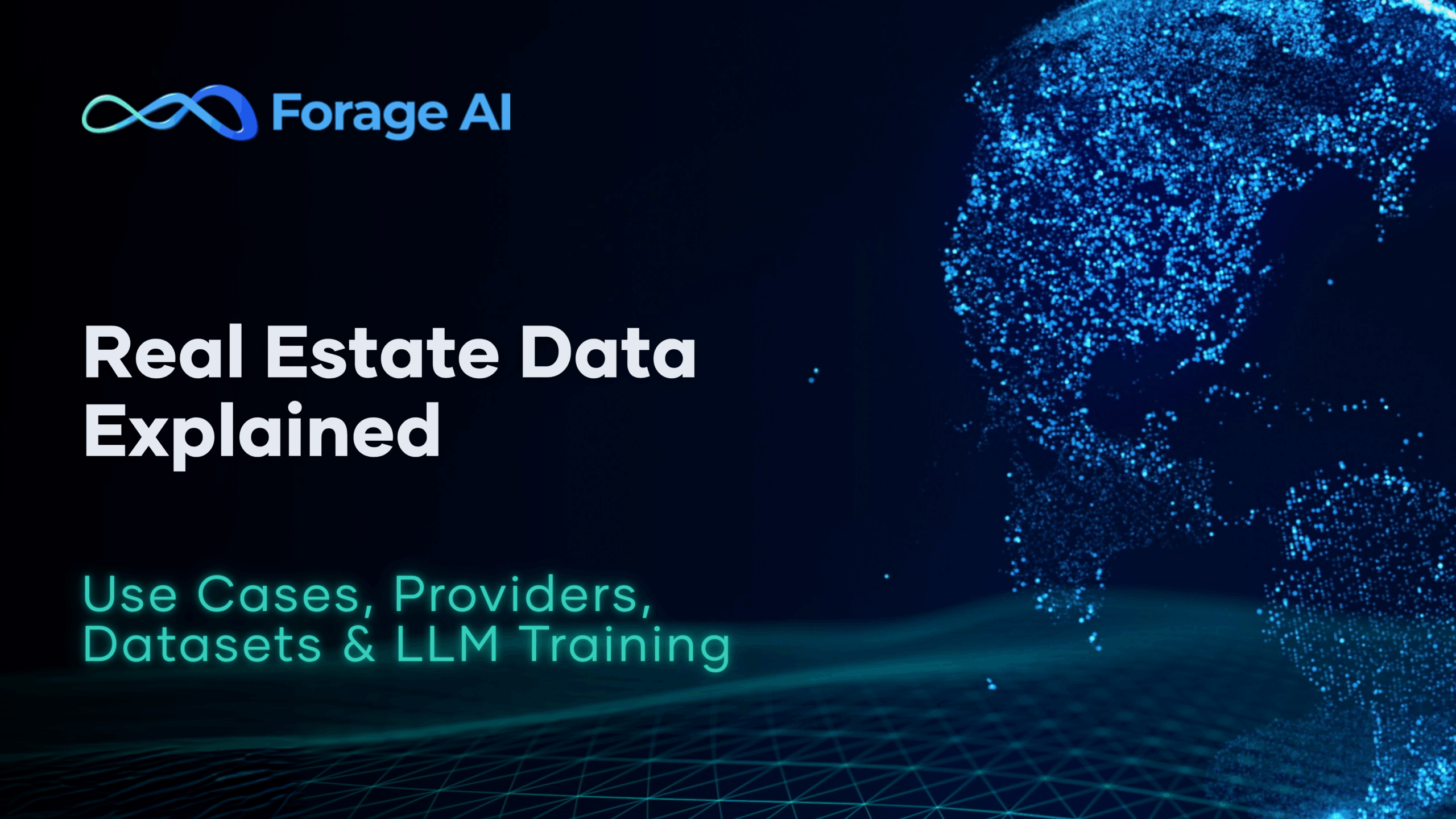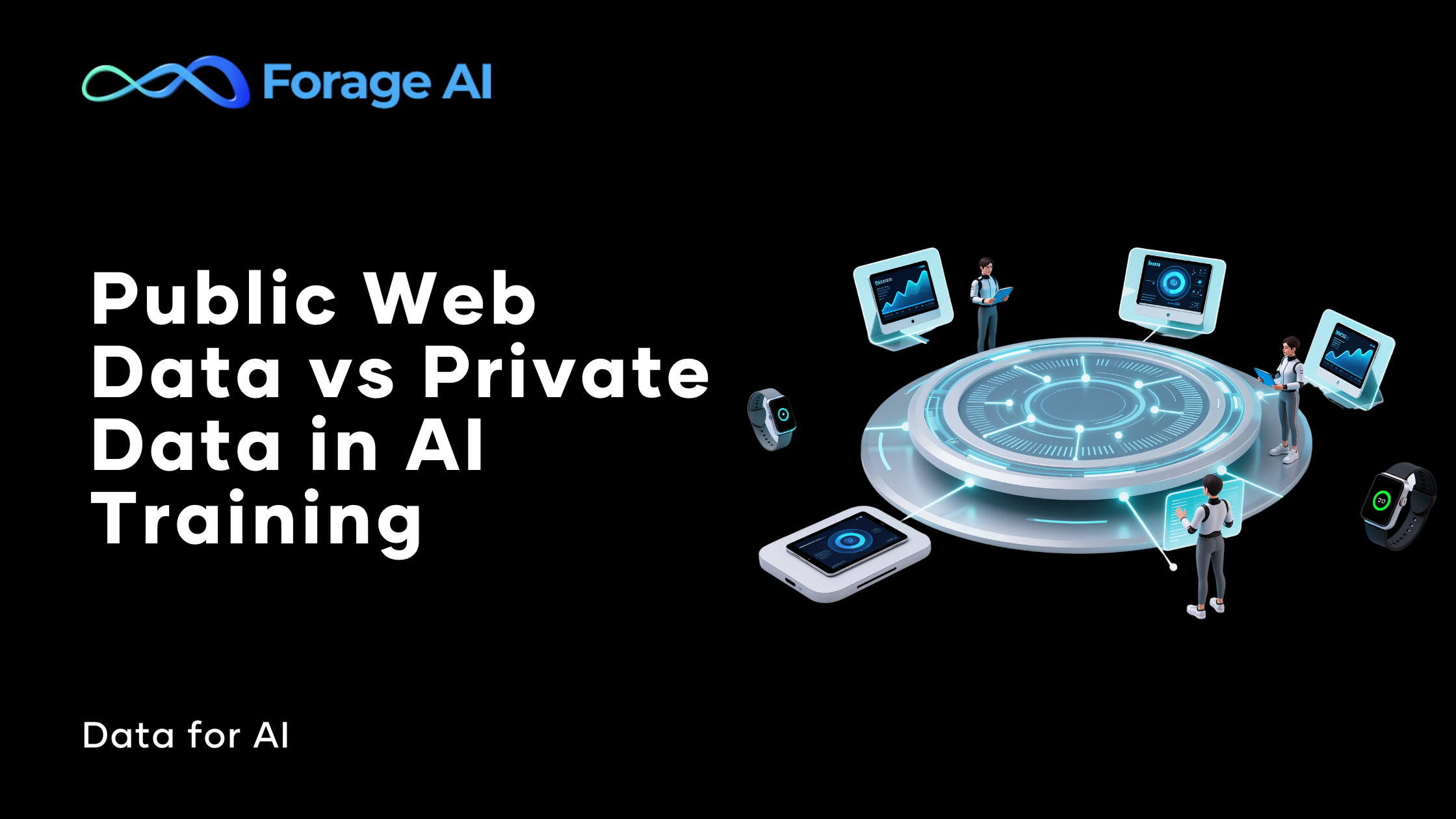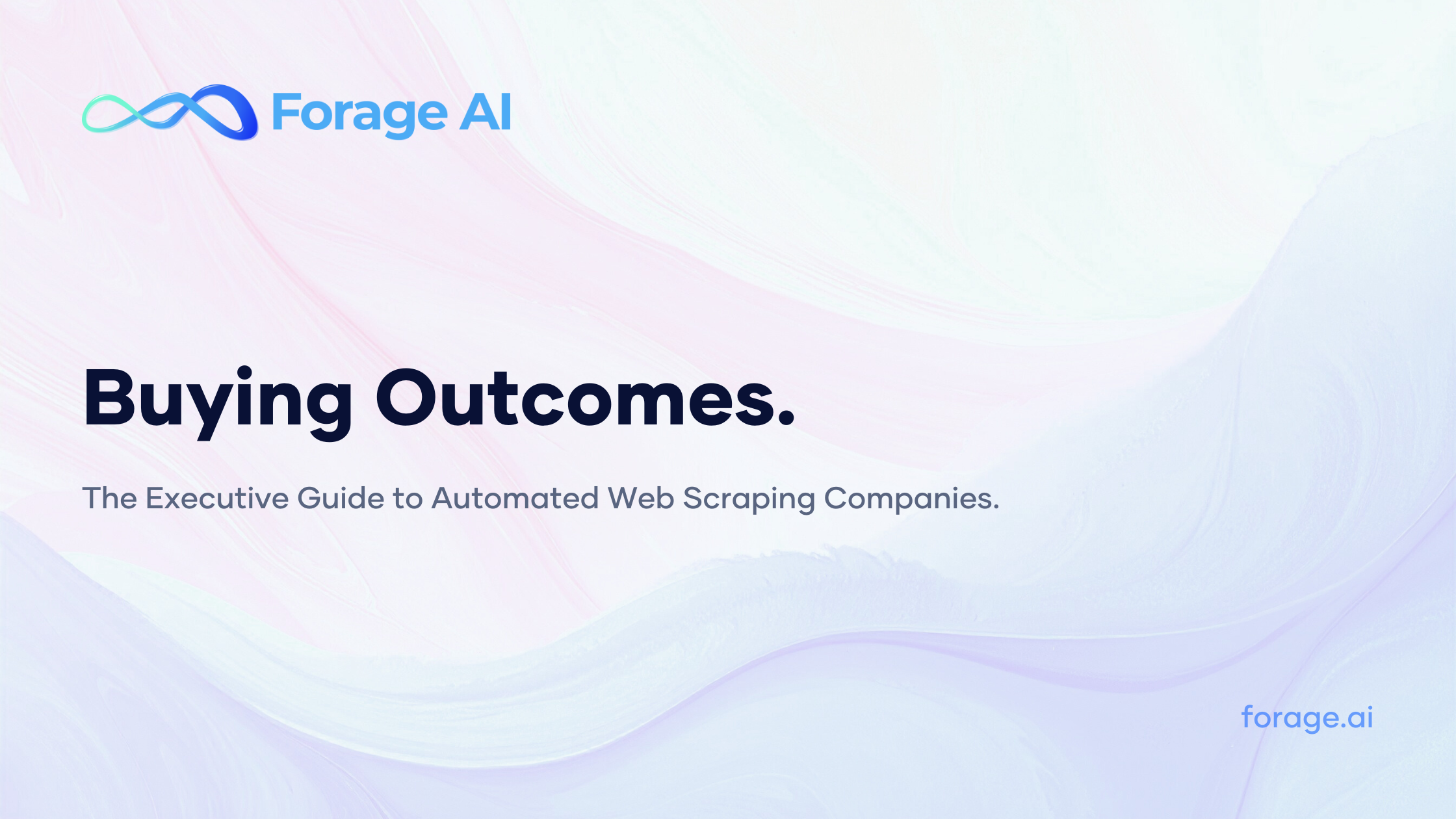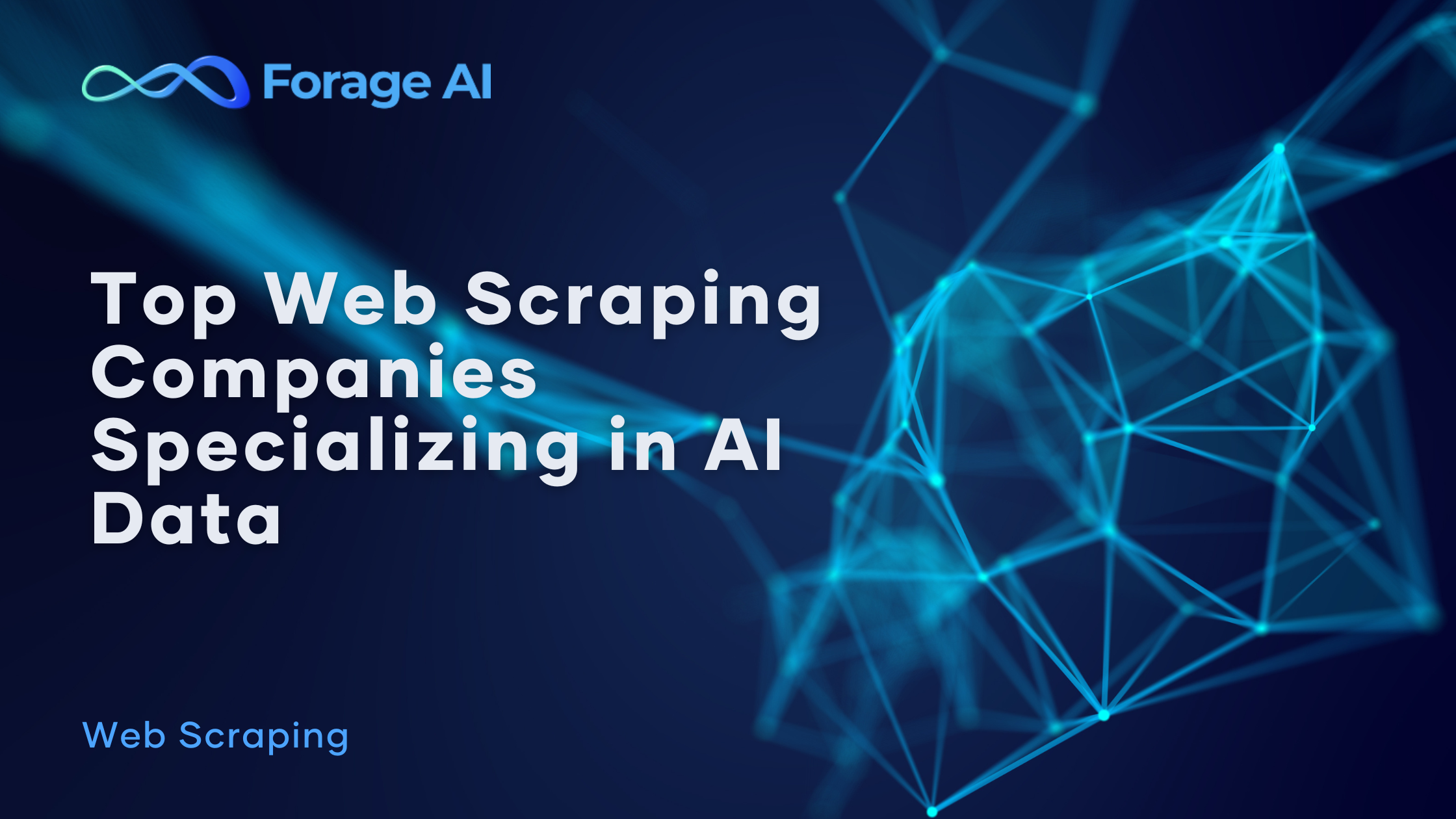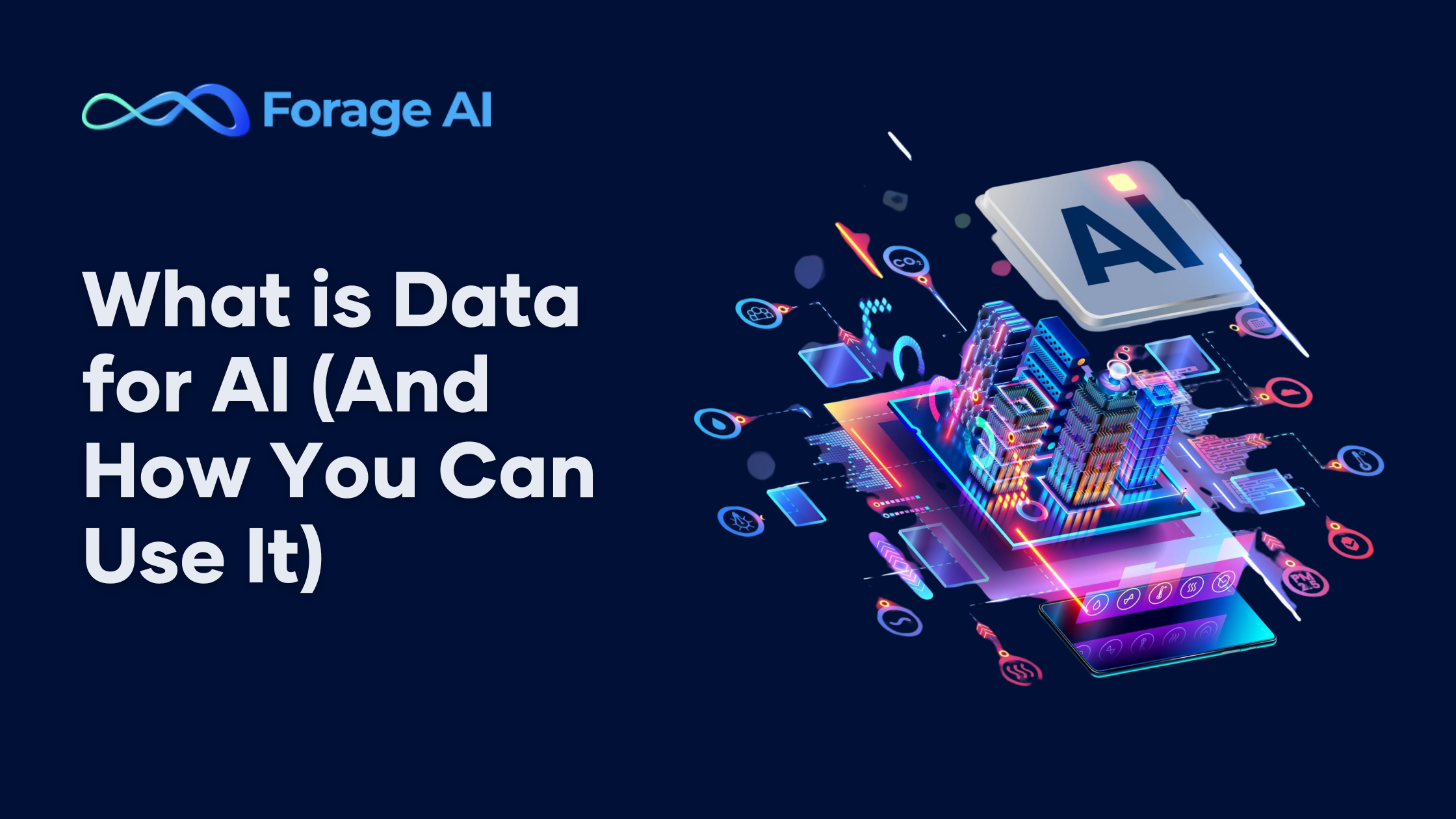Every day, the real estate industry generates 2.5 billion data points from property transactions, market activities, and construction projects. Yet most businesses struggle to access, organize, and leverage this information effectively.
Whether you’re a commercial real estate investor hunting for undervalued properties, a construction company seeking qualified leads, or a PropTech startup building the next breakthrough application, your success depends on one critical factor: access to comprehensive, accurate real estate data. Working with the right real estate data provider ensures reliability, consistency, and scalability for all downstream analytics and AI use cases.
With this guide, we’re here to help! Here are some of the topics we will cover today to help you access real estate data:
- Types of real estate data available (property, market, commercial, construction)
- Top use cases (investment, lead gen, valuation, AI training)
- Best data providers (public sources, commercial platforms, scraping tools
- How AI is transforming the industry
What is Real Estate Data?
Real estate data encompasses all information related to properties, markets, transactions, and industry activities.
In short: Real estate data refers to digital information about properties, transactions, and market conditions used by investors, developers, and PropTech platforms to make data-driven decisions.
Real estate data refers to any structured or unstructured data related to the buying, selling, renting, development, and management of real estate properties. It includes a wide range of data points such as:
- Property listings
- Transaction history
- Ownership records
- Mortgage data
- Construction permits
- Building specs
- Geospatial data (zoning, elevation, flood zones)
- Demographic insights
- Market trends and comps
- Rental yield and occupancy rates
This data flows from multiple sources: government records, MLS systems, property management platforms, construction departments, and increasingly, satellite imagery and IoT sensors.
Real Estate Data Use Cases
Real estate data isn’t just for brokers anymore. It drives growth across multiple sectors and businesses.
1. Commercial Real Estate (CRE) Intelligence
Investors and developers use data to assess market potential, compare rental yields, and identify high-opportunity locations. CRE professionals use commercial real estate databases to analyze:
- Vacancy rates
- Lease comps
- Foot traffic and heatmaps
- Tenant mix
This can help them make better investment decisions.
2. PropTech & AI Startups
Proptech companies rely on real estate data scraping and ML/LLM pipelines to fuel valuation engines, personalized recommendations, or chatbots. For example:
- AI-powered virtual agents for property discovery
- Predictive price estimators
- Automated due diligence using document extraction
There are so many businesses, like property listing websites, built on web-scraped real estate data.
3. Construction and Development
Construction companies and urban planners use construction industry leads, zoning data, and permit history to understand the demand and requirements of buyers to plan future builds and identify demand gaps.
4. Banking, Lending, and Insurance
Mortgage lenders analyze property price trends, credit risk profiles, and LTV ratios, while insurers use structural and historical data to assess premiums.
5. Government and Urban Planners
Authorities use real estate datasets to manage infrastructure, predict housing needs, and improve land use zoning with real estate data analytics.
Real estate data has literally endless use cases. If you’re not leveraging this opportunity, you are missing out. However, even when companies plan to use real estate data, they are clueless about how to obtain it.
Where to Get Real Estate Data: Providers and Datasets
Sources of real estate data varies by property type, geographic region, and intended use case. Here are the main sources:
Data Sources – Where raw real estate data originates
- Public Records – County assessor offices, HUD, municipal zoning departments, tax databases, and building permit systems
- Listing Data – MLS databases, regional listing services, and major property platforms (e.g., Zillow, Realtor.com, LoopNet)
- Construction & Development Records – Permit databases, zoning maps, contractor filings, and project pipelines (e.g., Dodge Data, BuildFax, ConstructConnect)
2. Data Providers – Organizations that collect, clean, enrich, and deliver real estate data:
| Provider Type | Key Players | Specialization | Best For |
| Commercial Aggregators | CoreLogic, ATTOM, CoStar, REIS | Market analytics, transaction history | Investment analysis, market research |
| Listing Platforms | MLS, Zillow, LoopNet, Realtor.com | Active listings, market trends | Lead generation, competitive intelligence |
| Construction Specialists | Dodge Data, BuildFax, ConstructConnect | Project pipelines, contractor data | Construction leads, project tracking |
| Custom Data Solutions | Forage.ai, DataSeer, PropertyRadar | Tailored datasets, multi-source integration, AI-ready formats | AI development, specialized analytics |
What are the best real estate data providers for AI applications?
Leading data providers like Forage AI, CoreLogic, and ATTOM deliver AI-ready datasets. Forage AI goes beyond aggregation — offering custom data pipelines optimized for analytics, automation, and LLM training.
Note- Building your own scraping pipeline is time-consuming, expensive, and prone to compliance risks.
A custom data partner like Forage AI handles the entire process — from sourcing and cleaning to normalizing and enriching — so you get real-time, multi-source datasets tailored to your exact use case. We ensure accuracy through multi-point validation, deliver data in AI-ready formats, and integrate directly into your workflows. The result? Faster insights, better decisions, and zero headaches.
AI in Real Estate: Why Data Quality Matters
From predictive pricing to AI-powered tenant screening, artificial intelligence is reshaping real estate decision-making. But these AI models are only as good as the data they learn from. Incomplete, outdated, or poorly structured datasets lead to inaccurate predictions, wasted resources, and missed opportunities.
How does AI improve real estate data accuracy?
AI models automatically clean, normalize, and validate property data by detecting outliers and inconsistencies. This improves decision-making for investors and analysts who rely on up-to-date, multi-source data.
That’s why understanding what makes a real estate dataset valuable is essential — whether you’re building a machine learning model, training a Large Language Model (LLM), or running advanced analytics.
What Makes a Real Estate Dataset Valuable
High-impact AI outcomes in real estate depend on datasets with these characteristics:
- Granularity – Data at the parcel, block, or ZIP-code level for precision insights.
- Historical Depth – Time-series data capturing years of transactions, market trends, and valuations.
- Multi-Source Integration – Blending property,
- zoning, construction, crime, and amenities data into one unified dataset.
- Textual + Visual Inputs – Rich descriptions, images, and floorplans for training both LLMs and computer vision models.
These curated datasets are often used for LLM fine-tuning, enabling models to understand property terminology, price trends, and location semantics. By feeding LLMs structured, validated real estate data, companies can generate more context-aware predictions, valuations, and descriptions.
Common Data Formats for AI Applications
To feed AI models efficiently, real estate data often needs to be delivered in:
- CSV/JSON – For structured numerical and text-based data.
- Shapefiles / GeoJSON – For geospatial mapping and analysis.
- Parsed PDFs/HTML – Extracted from listings, legal documents, or permits via OCR/NLP tools.
AI-Powered Real Estate Insights
With AI development, generating insights from real estate data is even easier. Here are a few ways in which companies are using AI-powered real estate data to generate insights. Here’s how:
- Property Description Generation
Real estate firms are using AI-powered tools to craft engaging, SEO-friendly listing copy in minutes. - Market Summary & Reporting
AI platforms are transforming raw real estate data—such as listings, pricing, and construction activity—into quick executive summaries and regional insights, dramatically reducing manual research hours. MarketWatch - Smart Real Estate Agents (Chatbots & Virtual Assistants)
AI-driven chatbots are reshaping client engagement by handling lead qualification, appointment scheduling, property recommendations, and 24/7 customer support. One chatbot implementation boosted lead response efficiency and scaled round-the-clock engagement. tringlabs.ai - Document Extraction & Analysis
AI systems are increasingly used to parse complex real estate documents—like leases and contracts—extracting structured information automatically and improving due diligence accuracy.
What role do AI agents play in real estate data processing?
AI agents automate repetitive tasks such as property categorization, lead qualification, and document parsing. When powered by LLMs, they can even summarize listings or extract details from complex contracts in seconds. - Predictive Modeling
By fine-tuning on historical pricing, economic indicators, and transaction data, AI tools can forecast property values, rental ROI, and neighborhood trends—shaping more informed investment strategies.
Real Estate Data Challenges & How Forage AI Solves Them
In today’s market, data is one of the most valuable assets in real estate — but only if it’s accurate, accessible, and actionable. The challenge? Most property, market, and construction data is scattered across dozens of incompatible systems, often locked in outdated formats or updated far too slowly to guide real-time decisions. For developers, investors, brokers, and PropTech innovators, this creates costly blind spots, delays, and missed opportunities.
Here’s how Forage AI transforms these challenges into competitive advantages:
- Data Fragmentation & Inconsistency
Public records, MLS feeds, permits, and zoning documents exist in dozens of different formats across siloed portals, making comprehensive data integration nearly impossible.
Our custom scraping pipelines and intelligent data normalization layers integrate these fragmented sources into unified, enriched datasets — ready for immediate analysis or AI training — cutting data prep time by up to 90%. - Inaccurate & Stale Market Data
Traditional AVMs and marketplace estimates can be outdated or wildly inaccurate, especially for off-market properties or unique assets, leading to poor investment decisions.
We aggregate multiple public and private data sources with continuous real-time updates, delivering insights significantly more accurate than static vendor feeds. - Unstructured Legal & Zoning Documents
Critical details are often buried in lease agreements, permit PDFs, and zoning overlays — data that remains inaccessible without labor-intensive processing.
Our advanced NLP models and OCR technology convert unstructured documents into structured, searchable data, enabling instant entity extraction, clause summarization, and automated workflows. - AI Training Data Bottlenecks
Training effective LLMs on real estate data requires massive, diverse, and consistently labeled datasets — something that’s usually prohibitively expensive and time-consuming.
We deliver production-ready AI training corpora, pre-labeled and optimized for LLM fine-tuning, complete with structured property data, geospatial features, and time-series market trends.
Forage AI delivers LLM-ready real estate corpora, integrating text, geospatial, and image data. This ensures LLM models like GPT or Claude can analyze and generate insights from real-world real estate data — from property valuation summaries to zoning document analysis.
Real Estate Data FAQs
Where can I get high-quality real estate data?
You can source real estate data from public databases, listing platforms (like Zillow, Redfin), or premium providers such as ATTOM, CoreLogic, and Forage AI. For enterprise-scale needs, Forage AI builds custom pipelines tailored to your use case.
What is the best way to use real estate data in AI applications?
Use real estate data for property price prediction, tenant scoring, or property descriptions. Forage AI can help extract data that you need and integrate with your data pipeline. We can also build LLM-based tools for chatbots, analytics, and insights.
How can LLMs help in real estate?
LLMs are trained using curated datasets that include property listings, transaction histories, and market insights. Providers like Forage AI prepare and label these datasets, ensuring models learn real-world real estate semantics and generate accurate, domain-specific outputs.
Can I use scraped real estate data for commercial projects?
Yes, if data is publicly available and your use complies with legal and licensing requirements. Working with a partner like Forage AI ensures compliance, scalability, and quality in every dataset we build or scrape.
What sets Forage AI apart from other providers?
- Custom-built data pipelines (not one-size-fits-all APIs)
- Support for visual, textual, and structured data
- Seamless LLM and GenAI integration
- Competitive edge through fast turnaround and deep data enrichment
- Data quality assurance like no other
Final Thoughts
Real estate data isn’t just about addresses and price tags anymore—it’s about unlocking patterns, predicting trends, and powering innovation. Whether you’re building the next PropTech app or scaling commercial investments, access to high-quality real estate data—and the ability to apply AI to it—can transform how you work.
With Forage AI, you’re not just buying data. You’re gaining a partner that helps you extract value from real estate data at scale, fuel your AI initiatives, and stay ahead in a competitive landscape.
As a trusted AI data provider, Forage AI delivers validated, LLM-ready datasets that accelerate innovation for PropTech, finance, and enterprise teams.
Need help building your real estate data pipeline or AI model?
👉 Talk to Forage AI experts – Get enterprise-grade real estate data solutions tailored to your use case.

